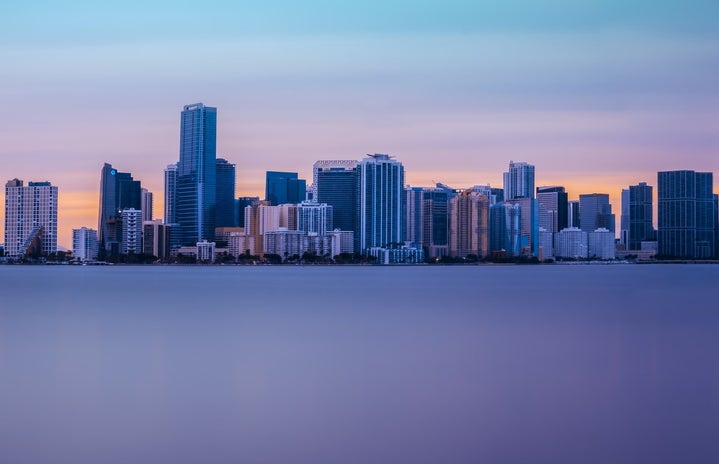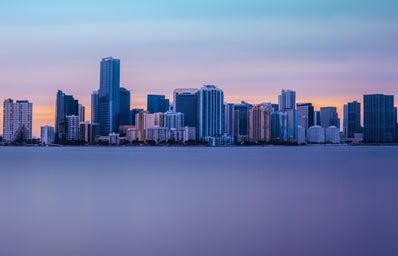Known by many as the “gateway to the Americas,” Miami pulses to the rhythms of the Caribbean, Central America and South America. It is a city shaped by its tropical ambiance, upbeat character and the rich cultural contributions of immigrants. When thinking of the city, many envision an energetic night scene full of folks riding flashy foreign cars and living in sky-high penthouses riddled across the beachside. Whether it be due to media portrayals such as “Miami Vice” or “Scarface,” Miami is associated with flamboyant, over-the-top lifestyles. These stereotypes may find themselves to be true for the smaller affluent portions of the city, but Miami is home to a larger community that doesn’t fit this narrative. Many of our community members come from working class families, including myself, who often get excluded from the popular imagination of the city.
I have always been grateful for the way that my community has helped me become the person I am today. While there were definitely moments of struggle in my upbringing, I believe that it turned me into a stronger and dedicated person. Being from a working class, immigrant community showed me the value of education and never giving up on your goals. To me, Miami is a testament to the struggle that forges resilience. Despite this, I recently struggled with feelings of disappointment toward my city. Particularly, the politics that the city currently holds leads me to feel dissatisfied with the future of my hometown.
The city of Miami recently passed a law criminalizing homeless encampments on public property. Homeless people face written orders, fines and even jail time if they fail to vacate public property. The law fails to take note of the issues that lead to an increase in homelessness in the area, including job instability as a result of the pandemic and increasing rent prices within the city. Instead of providing additional resources to homeless communities or reevaluating the effectiveness of existing programs, the city would rather criminalize this part of our community. While local activists expressed their issues with this law, city commissioners shrugged off community members’ concerns. Instead, they decided to create an Adopt the Homeless program which would allow community members to lodge homeless people in exchange for money. The program would be a way to rid the city of its responsibility to correct the issues at the core of homelessness and properly meet the needs of these residents. It is clear that the commissioners do not care about the most vulnerable members of our community and actively seek ways to criminalize people who are just down on their luck.
Another issue that plagues Miami is the increasing cost of living within the area. According to a study by Realtyhop, the city is now the second most expensive housing market in the entire nation. Renters often spend 40% or more of their income on rent, according to Zillow, while wages do not increase to match these expenses. Seeing as most of Miami’s workforce are wage workers, it is concerning to see that the ability to live in the city is slipping out of reach for many residents. As a college student that hopes to return to their hometown, it’s worrisome to see that most Miami residents cannot support a household without the help of a cosigner or multiple roommates. Many of my friends and family members left the city because of these issues, and there are many residents who will be forced to do the same. The amount of wealthier residents coming into the city during the pandemic has been an additional factor that led to the increase of rent prices. The attraction is not only for the warm, tropical weather but also for the potential job prospects in the tech industry. With the help of Mayor Francis Suarez, the city was dubbed as one of the future hotspots for cryptocurrency. Due to the increase in interest from tech giants, such as Microsoft, the city faces the fate of cities like San Francisco. Tech giants led to the gentrification and displacements of low-income immigrant residents in these cities and altered the fabric of most of these tech-focused communities. This could soon be the reality for Miami residents.
While my community members will forever be a source of pride, it is clear that the city of Miami has to care for us, too. The city can expand and flourish in many ways without having to push out lower income residents and homeless people. Miami should be a city where everyone thrives, not just those with money.


